The 10 Best Documentaries of 2024
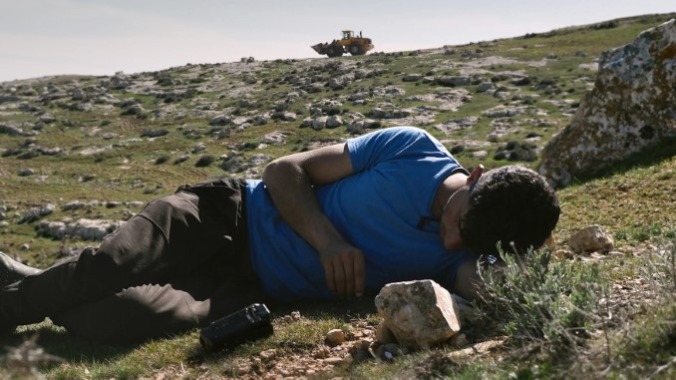
The best feature documentary films of 2024 feature people caught in moments of creation and destruction, and everywhere in between. In Apolonia, Apolonia, a young and daring artist lives her life and comes of age before the camera, reckoning with her growing power and shortcomings as a creative. The premise of Dahomey sees more creative works finally returning to their place of origin, centuries after being stolen away by colonizers. And in the bluntly titled Spermworld, meanwhile, the very act of human creation and conception is our focus–and through the desires of people who want desperately to conceive, the movie comes to understand the strange, complex, lonely desires of its male subjects.
At the same time, the best documentaries of 2024 are also tinged inescapably by loss and grief, whether they’re the Ukrainian artists suffering in the war-torn country throughout Porcelain War, the young women reckoning with the missing presence of a father figure in Daughters, or Shiori Itō’s righteous quest for justice following sexual assault in Black Box Diaries. Even the preservation of a person’s image after death was the subject of “necrotech” speculation, in the likes of Eternal You. Documentary film is the portal through which we consider these topics of how we create, live and decay. In Paste tradition, the list below is presented unranked and sorted alphabetically.
Here are the 10 best documentaries of 2024
Apolonia, Apolonia
Director: Lea Glob
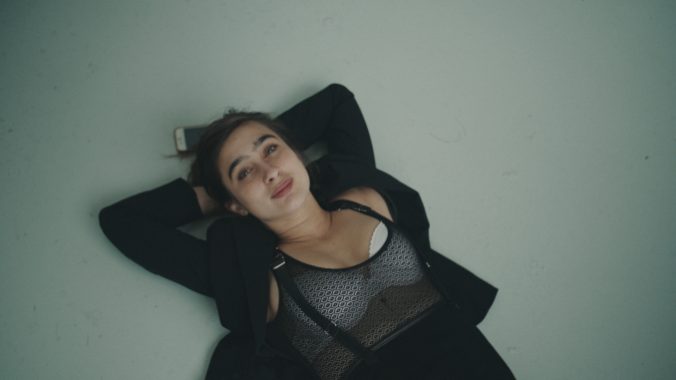
We meet Apolonia Sokol as she prepares for her 26th birthday party. A shaving cream beard coats her face as she trims her bangs in the mirror, hair trickling into the sink below. The first voice we hear, however, is not of Apolonia, Apolonia‘s subject, but director Lea Glob, who narrates the moment she captures behind her camera.
The Danish filmmaker met Sokol, a contemporary French painter, in 2009 when she set out to portray her on camera for a film school project — the result being 13 years of candid footage, spanning Sokol’s unconventional bohemian upbringing in her parents’ theater to her later accomplishments as a professional figure painter. Striking and tender, the film divulges Sokol’s evolution in both her own identity and art — two things she sees as interconnected.
At the beginning of Apolonia, Apolonia, Glob proclaims her goal: To create an eternal portrait of her subject, one that evokes the paintings of kings. She accomplishes this feat, leaving a dazzling record of Sokol’s life that champions and carries on her legacy as an artist. It feels as if in the 13 years of shooting, Glob rarely turned off her camera, utterly captivated by her subject, and the result leaves us just as transfixed. Though she rarely appears on screen, Glob’s presence in the film shows how the women on either side of the camera inspire each other in tandem. As both women face tragedies toward the end of the documentary, their support for one another punctuates their bond and parallel experiences of womanhood. —Sage Dunlap
Black Box Diaries
Director: Shiori Itō
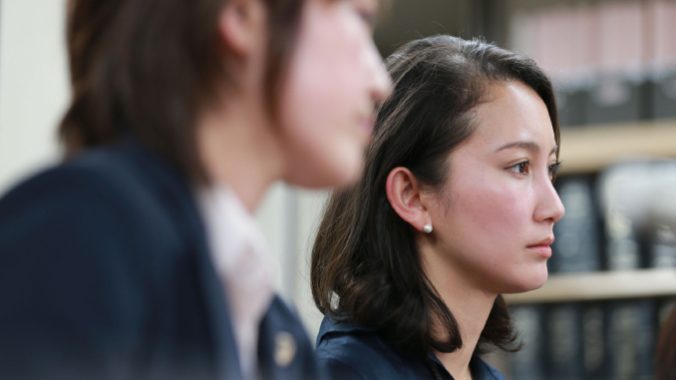
All stories documenting the personal anecdotes making up the #MeToo movement are courageous. Speaking up about a painful truth, knowing that if society at large was going to listen with generosity or empathy, well, it wouldn’t need a movement to get these tales told. They are brave alliances between survivors and journalists, battling entrenched sexism with unrelenting professionalism and mutual trust. Black Box Diaries tracks a moving #MeToo story that brought the movement to Japan, from the crime itself, through the journey of going public and to the uneasy closure of its long war of attrition. Its devastation is familiar. But because filmmaker Shiori Itō is both survivor and journalist, and recorded her own investigation into her assault in real time, the documentary becomes a thrilling testament to her exceptional, tenacious agency in the face of a hostile world.
A bit like how Navalny saw Russian opposition leader Alexei Navalny pursue the men Vladimir Putin sent to assassinate him, there’s a macabre adrenaline running through the first-person perspective of Black Box Diaries. Nobody has the same incentive to bring about justice than the survivors themselves. There’s also the same interconnectedness of sinister power on the other side: Itō’s attacker is Noriyuki Yamaguchi, biographer of then-Prime Minister Shinzo Abe, whose government maintained the same sexual assault laws for over a century. Yamaguchi’s political and police connections protect him from arrest at least once, and gets a helpful detective removed from Itō’s case. If all sexual assault cases are uphill battles, Itō’s is a Sisyphean conspiracy. And we get a front-row seat to the endless struggle. —Jacob Oller
Dahomey
Director: Mati Diop
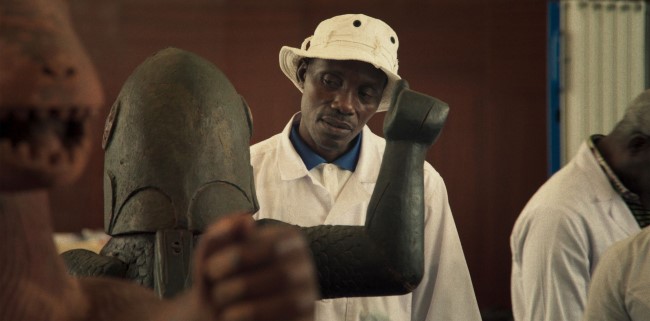
The silent witnesses to colonial conquest are given a voice for the first time in Mati Diop’s intelligent hybrid documentary, which follows her 2019 debut Atlantics. It unfolds amidst France’s decision to return 26 artworks (out of a total 7,000) pilfered from the African kingdom of Dahomey during its imperial rule. Diop follows these artifacts through the process of packing them up in Paris, receiving them in modern-day Benin and putting them back on display for citizens in the old royal city of Abomey. Three of these sculptures are given deep, booming voice over, wherein they muse about the act of repatriation, enduring scars of colonialism and their relationship to this familiar yet irrevocably changed land. Echoing and sometimes challenging these sentiments are students from the University of Abomey-Calavi, who Diop captures in an extended scene that illustrates how violent histories feed future activist fervor. —Natalia Keogan
Daughters
Directors: Natalie Rae, Angela Patton
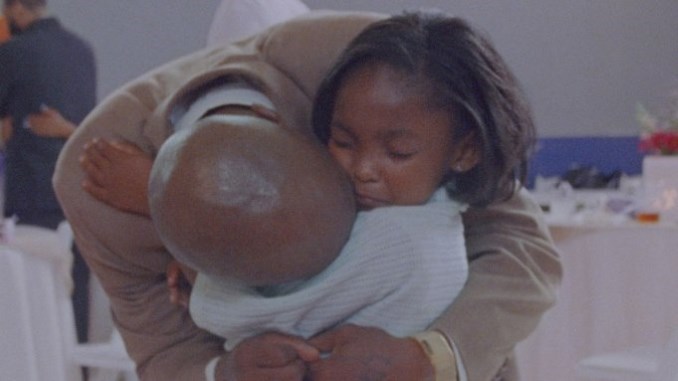
For ten long weeks, men who are incarcerated in a Washington, D.C. prison eagerly anticipate a rare opportunity to reunite with their daughters in the profoundly moving documentary feature Daughters. The film from co-directors Natalie Rae and Angela Patton follows these fathers and their children as they prepare for a “Date with Dad” dance that will allow them to be reunited for six hours, a rare opportunity for physical connection as prisons across the board begin to limit in-person visitations. As part of the two-and-a-half-month lead-up to the dance, those eligible to participate complete a fatherhood coaching program, entailing an informal roundtable where the men are able to express their complicated feelings about their own upbringings and anxieties over their mandated absence. Rawly exposing the cruelty imposed upon predominantly Black children by the carceral state while also capturing the emotional whiplash of this fleeting encounter, Rae and Patton construct a visually stunning and narratively resonant portrait of love and longing.
Undoubtedly aided by Patton’s involvement, the film’s candid confessions speak to a level of involvement from the directors that never borders on invasive or insensitive. There is no discussion of the fathers’ charges, only of the length of their sentences, as that’s the element of their incarceration that most profoundly impacts their relationship with their daughters. The girls are also allowed to express their unvarnished thoughts, reflecting the genuine comfort they must have felt with the filmmakers. Yet even amid these sincerely heart-wrenching scenes, the actual camerawork, lighting and framing are artistically inclined, making Daughters all the more riveting to engage with; the resulting dance itself is awash in a beautiful haze, as if the prickly pang of nostalgia colors each ruefully impermanent moment. —Natalia Keogan
Eternal You
Directors: Hans Block, Moritz Riesewieck
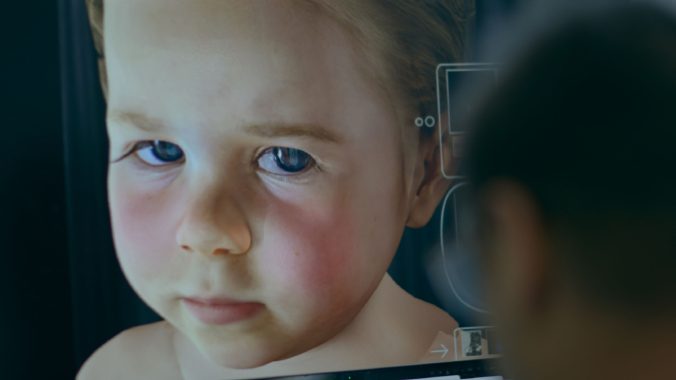
A counterpoint documentary to its festival companion Love Machina, Hans Block and Moritz Riesewieck’s Eternal You observes the burgeoning industry around techno-spiritualism with wry skepticism.
It stands to reason that if there’s money to be made in biotech, there’s an equal amount to be made in necrotech. Eternal You explores the sectors of the artificial intelligence business that’s wasted no time adopting the psychological tricks of the spiritual trade and applying them to chatbots and CG models. Block and Riesewieck first introduce us to a woman IMing with a program whose function is to pretend to be her dead boyfriend. It texts like he used to, thanks to a model set of examples and a vast amount of data scraped from conversations across the internet. If you can get past the ghoulishness of simulating someone you once loved, users’ emotions make them quick to forget they’re talking to a machine—even if the machine constantly spits out the same kind of weird chatbot contradictions that never seem to bother the easily impressed. In the same digital breath, the bot will say “I’m living” and “I’m not used to being dead.” Then it’ll assure its conversational partner that “I’m in hell.” It’s so abrupt and direct that it’s hilarious, until you see how devastating that random coding misfire is to the person seeking solace.
While AI in general is currently being sold as a miracle do-it-all to the most credulous among us, this specific use of AI is targeted towards an even more vulnerable demographic: The credulous and grieving. And those working behind the scenes are used to grifting. As Eternal You listens to those in charge of these startups, like Project December founder Jason Rohrer, we hear self-assured PR exaggerations. It’s showmanship. It’s the crystal ball, the velvet curtains, the copious candles. It’s the stuff that gets you funded by the rich and attracts comfort-seekers to your website. And the language hasn’t even changed that much. —Jacob Oller
No Other Land
Directors: Basel Adra, Hamdan Ballal, Yuval Abraham, Rachel Szor

Simply put, there is no film more vital this year than No Other Land, a documentary collectively helmed by Basel Adra, Hamdan Ballal, Yuval Abraham and Rachel Szor that captures the violent ethnic cleansing of Palestinians from the Masafer Yatta region well before the events of October 7, 2023. Though this film marks all of their directorial debuts, it centers on the connection and collaboration between the West Bank-born Basel and Israeli Yuval, who live very different lives as activists and journalists due to the occupation. Through decades of footage that Basel and his family have shot over the years, the long-standing Zionist project of displacing Palestinians and suppressing their basic human rights is on full display; contemporary footage, largely shot by co-director Rachel Szor, charts how zealously the IDF has escalated its destruction of Palestinian lives since 2019. The film ends on a literal shot that will rally anyone with a conscience into unwavering support for a people who have since only faced overtly genocidal inhumanity. —Natalia Keogan
Pictures of Ghosts
Director: Kleber Mendonça Filho

A good personal essay, so thoroughly embedded in the author’s experiences, tends to require some broad exterior perspective or context to give readers a stronger reason to care. Pictures of Ghosts, director Kleber Mendonça Filho’s new documentary, starts with personal experiences: His upbringing in Recife, the capital of the Brazilian state Pernambuco, his memories of his mother, and of what the city was versus what it has become throughout his 55 years. You’re forgiven for assuming Filho is his own subject. He is, after all, the inception of the film, and without him, there’s no story to tell. But without Recife’s cycle of development and decline, and a culture once-upon-a-time friendly to arthouse cinemas, there would be no Filho, either. Through his wryly narrated anecdotes, he becomes a conduit for a larger story. Pictures of Ghosts is about him, and in so being, it’s also about the process by which cities are unintentionally brought to disrepair through modernization. And between these two axes, it’s also about Brazil’s growing pains from the 1960s to the 2020s. Filho is self-reflective, not self-obsessed, and his clear-eyed stance is crucial to the anti-vanity he brings to his examination of his childhood home and youthful obsession. Watching Filho’s account of this gradual doom might inspire thoughts about streaming, though the concept remains far from Pictures of Ghosts itself. Filho isn’t a time traveler, and the folks running the digital platforms that have influenced how movies get made and seen for the last decade aren’t, either. But Recife’s history is bound in these moviehouses, and turning away from them has consequences. Spackling over Art Palacio, for example, means erasing memory of how the Nazi regime designated the spot as a Universum-Film AG outlet, intended as an extension of their propaganda cinema machine nestled within Brazil’s sympathetic bosom. Nevermind Recife’s glitzy glory days, graced by visits from Janet Leigh and Tony Curtis; the city’s relationship with the Third Reich can’t be allowed to fade from the public record. In a way this makes Pictures of Ghosts Filho’s show after all; he’s performing the duties of a preservationist, using a combination of archival footage, family home video footage, and his own filmmaking (including clips from his first feature, Neighboring Sounds) to sculpt the full image of Recife, from half a century ago to today, warts and all. Filho doesn’t seem interested in remaking Recife to match his own image he lives there, and that’s about it. Filho is affected by Recife’s changes. He isn’t the one affecting them. Instead, he’s ensuring they won’t be forgotten.–Andy Crump
Porcelain War
Director: Brendan Bellomo, Slava Leontyev
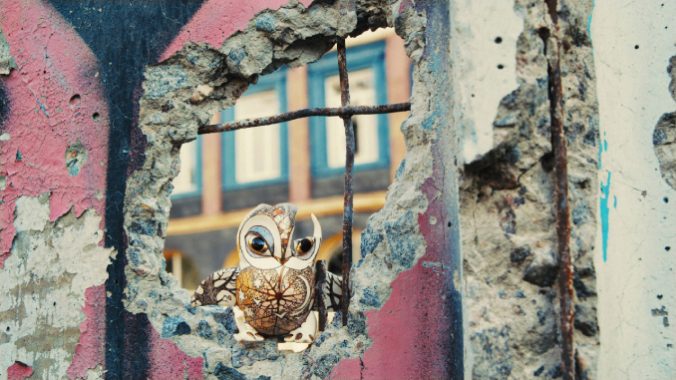
Staving off Russian forces inside the Ukrainian border, its artists take a two-pronged approach: Keep creating the beauty that will be their legacy, and take up arms to ensure they won’t be lost to legacy before their time. This is the hopeful fight fought by Porcelain War, a battlefield art documentary that faces its violent dissonance head-on until resonance emerges.
Slava Leontyev and his wife Anya Stasenko work with porcelain. Slava makes the objects, Anya paints them with quaint natural figures navigating miniature worlds. Slava is also an ex-Special Forces soldier who trains civilians to take up arms to defend their homes against Russian invaders. Throughout Porcelain War, the pair draw connections between destruction and creation—between their fragile yet lasting ceramics and their brutalized yet tenacious country—that erase any doubt between the essential link between them. This poignant, inescapable philosophizing permeates Leontyev and Brendan Bellomo’s nonfiction, giving it a new, entrancing approach to the empathetic intensity of last year’s Ukrainian war docs In the Rearview and 20 Days in Mariupol. —Jacob Oller
Spermworld
Director: Lance Oppenheim
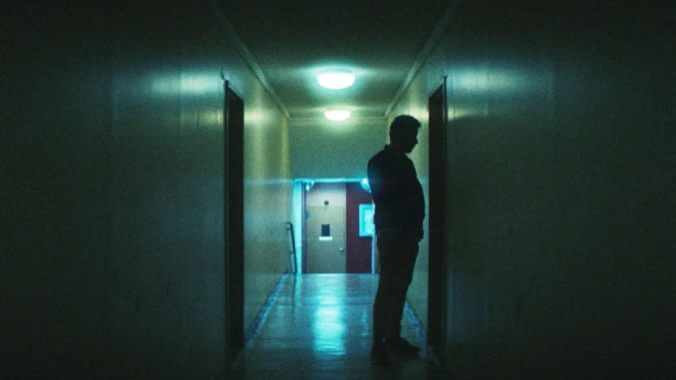
A few days before a documentary about cum shot onto Hulu, Esquire ran an article titled “How to Be a Better Man Right Now.” This piece assessed modern masculinity in relation to past advice dispensed by its fellow macho magazines, and came to a simple conclusion: “Guys are struggling.” As some parts of society slowly begin to reject the toxicity that has come to define masculinity, responses range from a radicalized doubling-down on misogyny to self-effacing apology. There are countless annoying ways men jerk themselves off about their experience being infinitesimally decentered from our cultural spotlight, but the bottom line is that many guys are finding themselves adrift, seeking purpose and place. Esquire recommends learning to listen and making soup, and offers more masturbatory suggestions like developing encyclopedic knowledge of a pet topic. But none of this has the insight of Spermworld, a movie that understands the strange, complex, lonely desires of its male subjects—men who’ve found that the best self-care is self-abuse. Spermworld, from Some Kind of Heaven filmmaker Lance Oppenheim, follows the lives of off-the-books sperm donors. These freelance impregnators connect through Facebook with those seeking children. In private groups, there’s a sense of community—something less icy than an online database and more transparent than a skeevy Craigslist ad. Whether the film finds itself in a deserted parking lot (where a guy, parked with his fiancée, is jerking off into a cup) or a children’s playplace (where a guy asks someone to watch the kids so he can go into the bathroom and jerk off into a cup), the documentary’s saturated color, high shadows, and shallow focus generate the uneasy feeling of an anonymous hallway, explored alone. But, as strange and off-putting as it can be, this world serves a purpose. For the recipients, the process is goal-oriented. Get a baby, get out. For the cumtributor, it’s somewhere between sex work, charity and a god complex. There are the kinksters getting their rocks off, and the Goo Samaritans. Nobody’s reasons are black-and-white. Spermworld is engrossing, intimate and bittersweet. The desperate desire for connection with others and contribution to something bigger than a 9 to 5 is especially relatable as our increasingly isolated and tech-centric lives silo us off into our Slack channels and group chats. As we see the men interact with their clients, the complicated (sometimes ulterior) interpersonal motives bleed through. I never thought there’d be so much jacking off in such a moving film.–Jacob Oller
Youth (Hard Times)
Director: Wang Bing
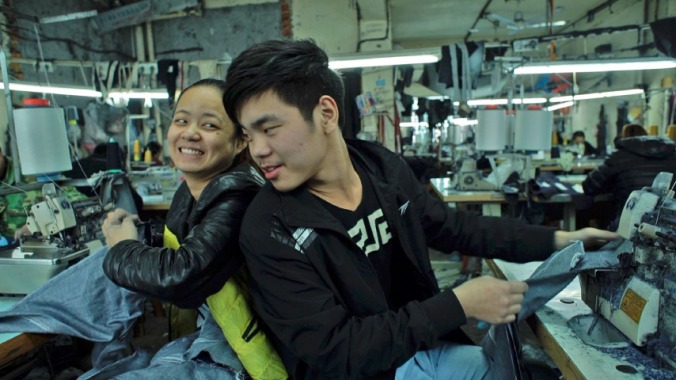
Continuing his monumental Youth trilogy, following the lives of young migrant laborers in the Yangtze Delta garment region, Chinese documentarian Wang Bing returns to the festival circuit this year with the precisely titled second installment Youth (Hard Times).
It might be difficult to believe that Wang Bing is able to glean further insights after the sheer length of Spring, but Youth (Hard Times) evolves Wang’s ideas about labor and humanity in a way that is paradoxically both darker and lighter. Hard Times is just as unflinching as Spring in its repetitive nature, but the second installment adds a dynamic approach to the material that was lacking in Spring.
While much of the 227-minute runtime is dedicated to the minutiae of factory work—the humming of the sewing machine is as prevalent as ever—Wang takes us out of the workplace more than he did with Spring. In contrast to the cramped, dirty Zhili province, Bing follows workers to expansive green landscapes as they return home to their families for New Year’s. An introductory image of one of the workers’ fathers greeting him with fireworks has stayed in my mind for its kindness. Another shot shows a man playing acoustic guitar on a train. Through the power of these images, Wang affords the workers a gentle dignity in a way that they may not experience in their daily working lives. —Katarina Docalovich






































